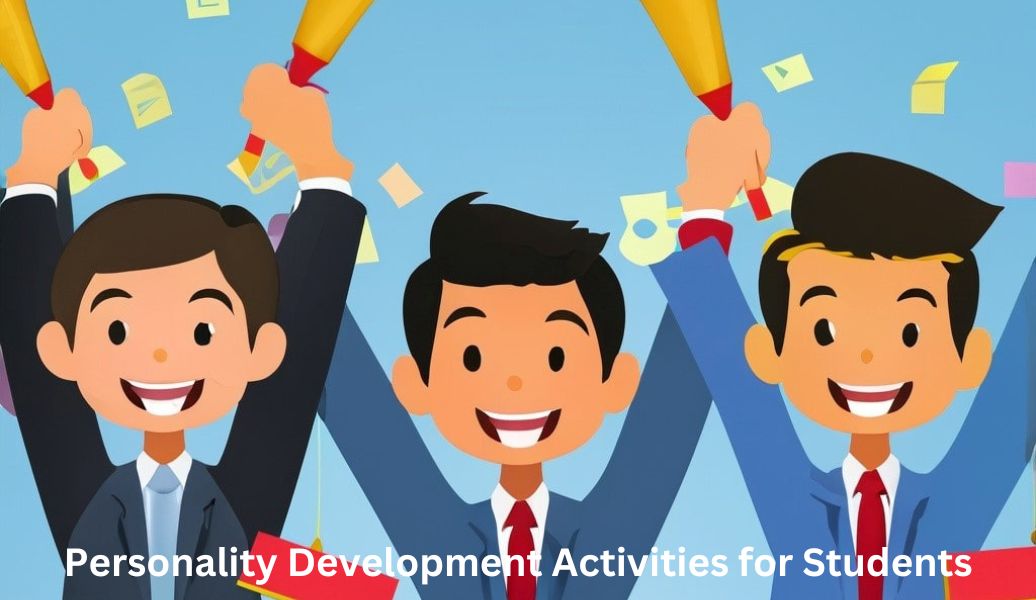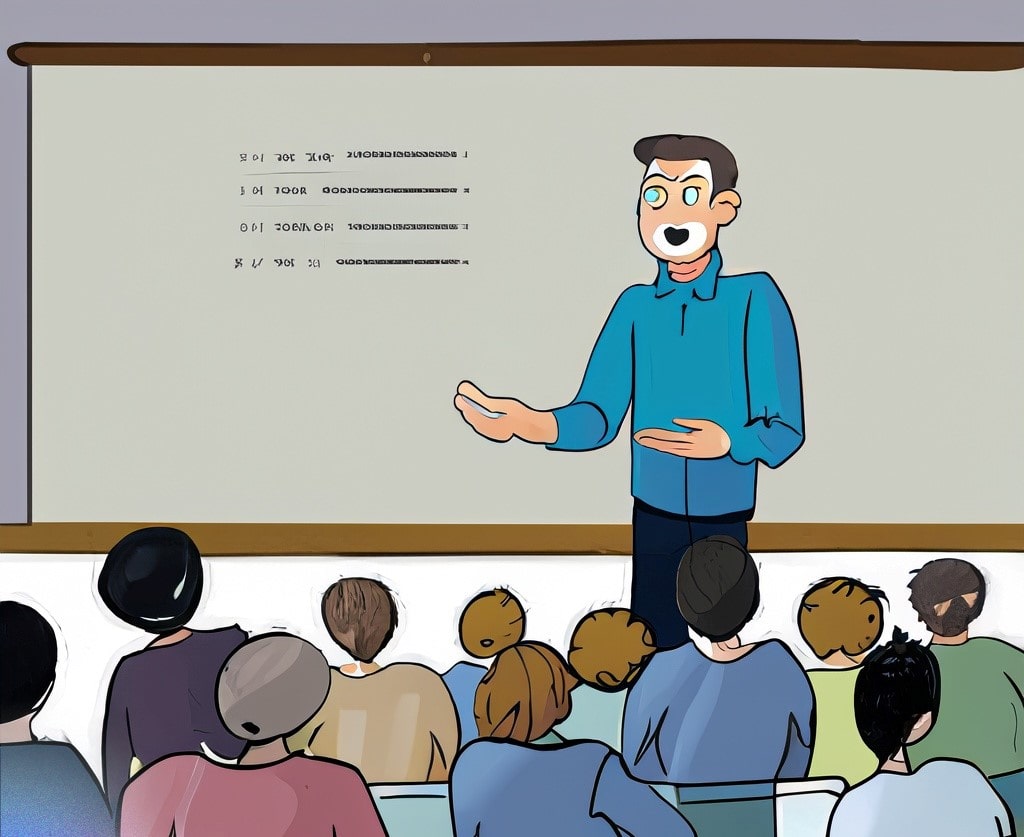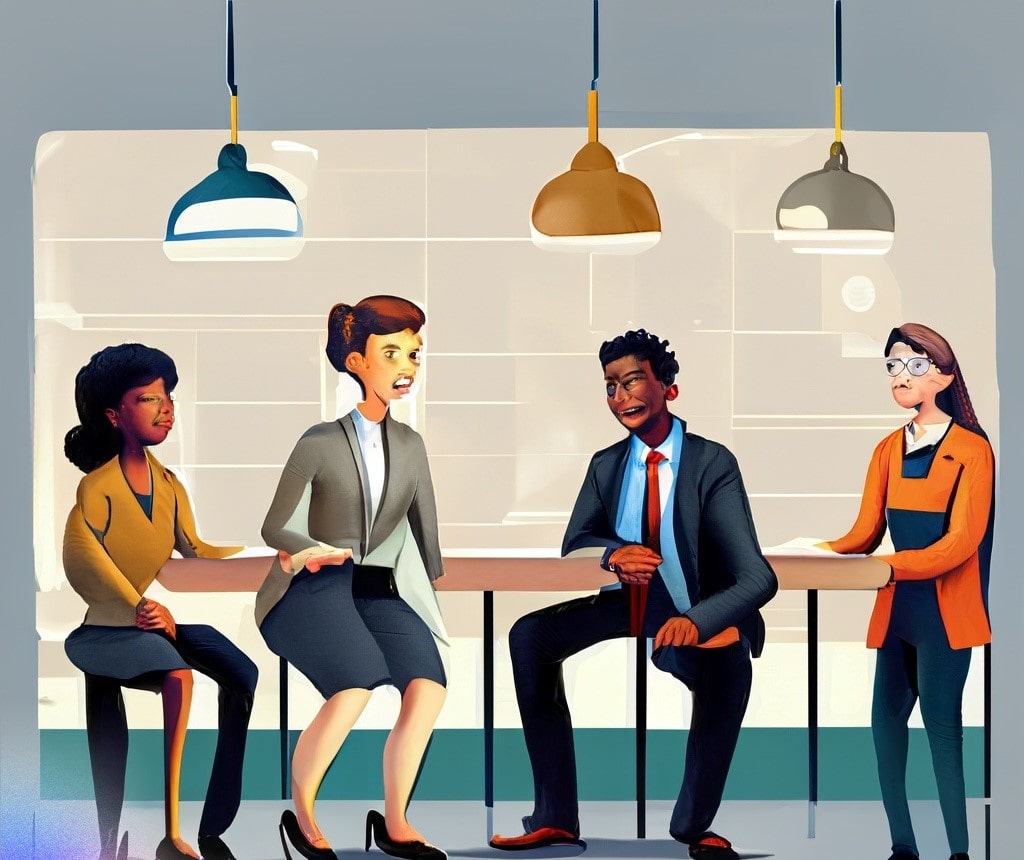
This article examines in detail how to conduct Personality development activities for students. Personal growth depends on the development of personality. Personality development activities, workshops, and tools help individuals to self-develop, improve their social skills, and enhance their personal and professional growth.
Socialising involves various aspects, such as making new connections, initiating conversations, and demonstrating effective communication skills. This can lead to a sense of wonder and curiosity among participants as they navigate the networking landscape, engage with a diverse group of individuals, and explore various approaches to building connections. Panel discussions offer insightful commentary from professionals in numerous industries. Attendees are exposed to various points of view at these gatherings, which helps them develop critical thinking skills.
Self-development
participants have to engage in self-reflection, meditation, and SWOT, goal-setting activities. Participants can get unpredictable insights about themselves during the process.
- Habit Tracker Apps: Using habit tracker apps, individuals monitor their daily progress toward building positive habits.
- Public Speaking Simulations: Engaging in virtual or in-person public speaking simulations
- Skills Building Challenges: Engaging in skills building challenges, such as problem-solving competitions or creative brainstorming sessions
Networking Activities and Interactive Games
To encourage students to engage in natural conversation, networking events frequently include networking activities and interactive games. Collaboration, creativity, and the growth of interpersonal skills are all encouraged by these activities.
How to develop networking skills:
Spontaneous speaking topics: Workshops for spontaneous speaking
To become more successful and compelling presenters while also developing better communication skills and acquiring confidence in handling unexpected situations.
These workshops are exciting and challenging, which results in a gratifying and enjoyable learning experience.
Spontaneous speaking: Participants have to choose subjects randomly from a draw, and they then have a set amount of time to speak about those topics. The rapid succession of issues and the demand for quick thinking is the key.
Story telling: After being given a stimulus or an item, participants are required to immediately come up with a story. Without planning, rafting captivating stories.
Debate session: Participants have spontaneous discussions about contentious issues and the spontaneity of the arguments and refutations made.
Interpretation of images: participants are asked to talk about the picture, after viewing an image.
Creation of Emotions or situations: To create emotions to convey feelings effectively and authentically.
Socialising Role Plays
Socialising Role Plays: Engage participants in Socialising role plays with various scenarios, where participants step into the shoes of different characters, facing various challenges and interactions, which can leave them intrigued and uncertain about the outcomes. Each scenario demands quick thinking, adaptability, and effective communication, leaving participants pondering the best approach to handle each unique situation.
Examples of Socialising Role Plays:
Negotiation skill booster: Participants role-play as entrepreneurs trying to negotiate a deal with a challenging client. Participants have to think on their feet and adapt their negotiation strategies accordingly.
The Socialising Event Mixer: Participants simulate a bustling socialising event, with each person having a specific goal, such as seeking a job opportunity or finding a mentor. The interactions happening simultaneously, and participants must navigate through the crowd and prioritize their networking efforts effectively.
Cross-cultural Teams: Participants engage in role plays with individuals from different cultural backgrounds, testing their ability to bridge cultural gaps and adapt their communication styles. Ensuring effective cross-cultural interactions.
The Rapid fire Challenge: Participants are given only 30 seconds to deliver a business deal to a potential investor. There is rapid-fire nature of the interaction, they have to make an impact in a short time limit.
Conflict Resolution Simulations: Conduct role-playing scenarios where participants practice conflict resolution techniques. Conflicts are unpredictable, and they have to find amicable solutions.
By incorporating Role Plays, participants can become interactive, engage, and gain valuable learning experiences. They can develop networking skills and emerge with increased confidence and adaptability in real-world networking scenarios.
Team Competitions
Organize team-based challenges or competitions that require participants to work together to solve problems or achieve specific goals. These challenges can be related to business scenarios or creative problem-solving exercises.
Collaborative workshops
Participants may face an array of tasks that require different skill sets, problem-solving approaches, and communication styles. This diversity leaves participants pondering how they can contribute effectively to the team
Participants face a multifaceted challenge that demands various perspectives, skills, and approaches. Each participant brings their unique strengths to the table, leading to a plethora of ideas and potential solutions. As they collaborate, they encounter unexpected obstacles and diverging viewpoints, which can leave them pondering the best path forward.
Rapid exchange of ideas and the synergy of group dynamics. Participants experience excitement as innovative solutions emerge, and creative sparks ignite. The collaborative setting encourages participants to bounce ideas off each other
Examples of a Collaborative Workshop
- Design Thinking Challenge: Participants collaborate on a design thinking challenge, such as creating a new product or service to address a specific problem. The open-ended nature of the challenge, requires participants to explore various possibilities and test out unconventional ideas.
- Team Building Escape Room: The workshop incorporates an escape room-style activity where participants must work together to solve puzzles and escape within a time limit. The excitement of solving each puzzle and the challenge of coordinating efforts to complete the task successfully are worthwhile.
- Brainstorming session: Participants engage in brainstorming sessions to generate innovative ideas for a particular project or organizational challenge. from the diverse array of ideas presented, participants have to filter out most promising concepts.
- Community Service Project: Participants collaborate on planning and executing a community service project. The fast-paced nature of organizing the event and working together to achieve a positive impact in the community.
Through a Collaborative Workshop, participants build teamwork , problem-solving and communication skills.
Short duration Coaching Sessions
Conduct short coaching sessions where participants receive quick and impactful feedback on specific aspects of their personality development.
Ice breaker meaning
Establishing a friendly and engaging atmosphere in social and business contexts depends on melting the ice. Icebreakers are effective facilitators, igniting conversations and encouraging connections between people. These tools spark conversations and break down barriers with the ideal balance of bluntness and ambiguity, leaving participants wanting to participate. Here are a few fun icebreakers that will liven up any get-together or meeting.
Steps in Ice breakers
- Plan and pick icebreaker exercises: Define the event’s goals, group size, and time limit.
- Start the activity by introducing it and describing how it will help the participants get to know one another better.
- Make little groups: Separate the participants into more manageable groupings.
- Choose Your Activities: Choose icebreaker games that are entertaining, participatory, and inspire participants to share a personal story. There are several examples, such as “Two Truths and a Lie,” “Human Bingo.”
- Limit your time: To keep the event on schedule and participants interested, specify a time restriction for each icebreaker activity.
- Help the activity along: Maintain a high enthusiasm level while guiding the participants through the icebreaker and clearly outlining the guidelines.
- Promoting Participation Make sure everyone has a chance to participate.
- Ice breaker games
Two Truths and a Lie: This time-tested icebreaker always gives a group enthusiasm. Each participant says three things about themselves, two of which are true and one of which is false. The remainder of the group makes a guess as to which claim is false, which causes interest and laughter.
Human Bingo: Distributing bingo cards with different personal attributes or experiences is known as “human bingo.” As they interact and engage with others who fit the descriptions on their cards, participants build relationships as they learn about common experiences and interests.
Emoji Introduction: Emoji’s are essentially global emblems of expression in the modern digital age. Emoji-only introductions encourage imaginative interpretations and humorous insights into the characters of the participants.
Feedback Circles
- Create small feedback circles where participants give and receive constructive feedback on various personality traits and behaviors. The diverse perspectives offered by different individuals are taken care of.
- Public Speaking Critique: Delivering a speech and receiving real-time feedback from the audience
- Feedback Interpretation: Participants may find it perplexing to interpret and prioritize feedback
- Addressing Limiting Beliefs: Feedback activities may bring to light limiting beliefs or self-doubt
- Balancing Feedback with Authenticity
Conclusion
Role Plays provide interactive, engaging learning experiences, enhancing essential skills, networking abilities, and adaptability. Collaborative workshops challenge participants with diverse tasks, problem-solving approaches, and communication styles. Feedback circles provide constructive feedback, and icebreakers facilitate connections and break down barriers.

